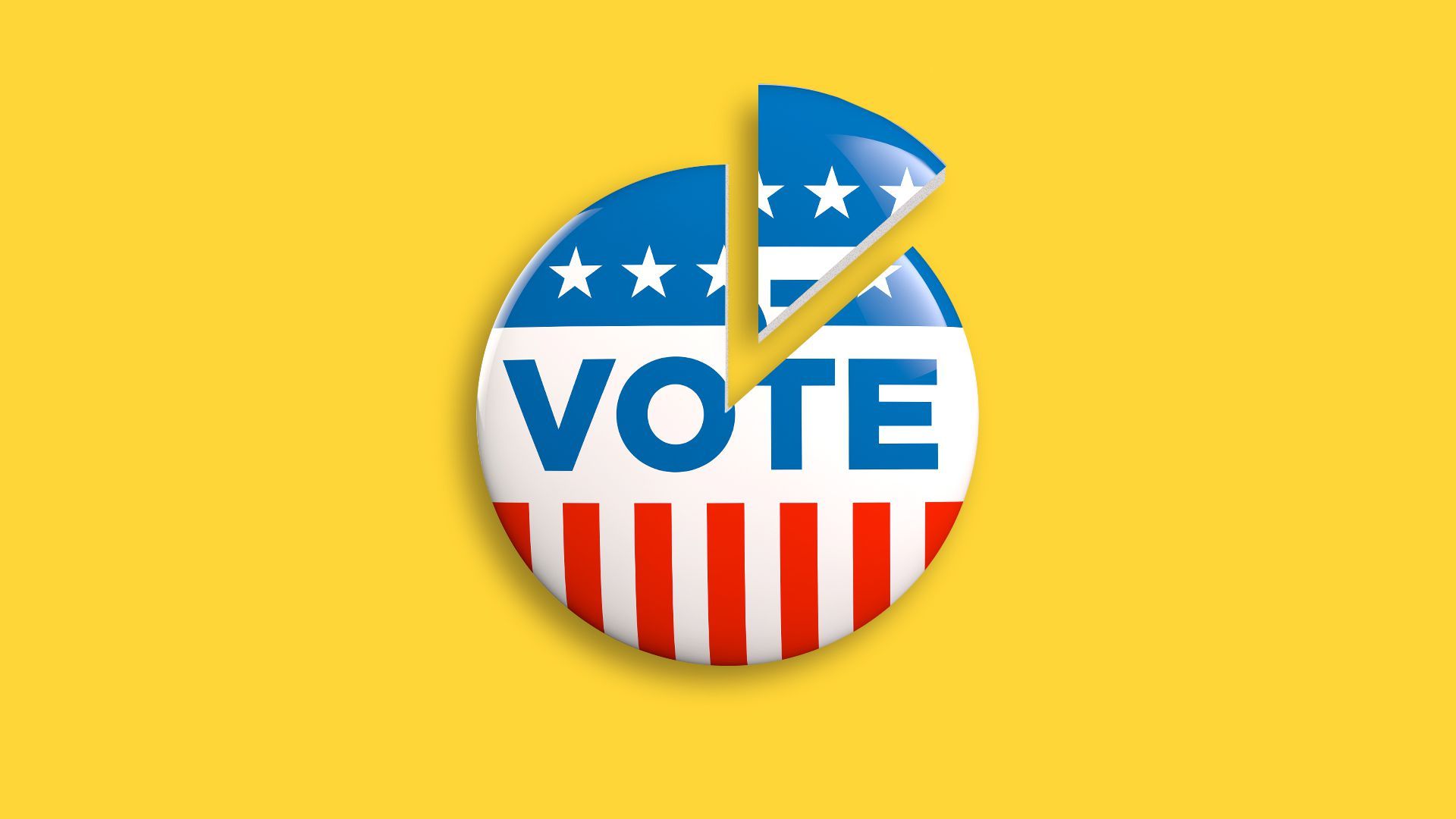Harvard Youth Poll: 2020 young voter turnout could approach 2008 totals
Add Axios as your preferred source to
see more of our stories on Google.

Illustration: Aïda Amer/Axios
A national poll conducted by the Institute of Politics at Harvard Kennedy School found historic interest among 18-to-29 year olds in the upcoming election, which could potentially lead to a massive voter turnout among age group.
Why it matters: With just over a week until Election Day, 63% of the poll's respondents indicated they will “definitely be voting,” which is the highest proportion of respondents in the twenty years the poll has been conducted. These young voters are motivated by a number of social issues.
- Young Americans as a whole wish to see increased policy actions to address healthcare issues (72%) and to improve access to mental health services (75%).
- 71% of all young Americans (including 50% of young Republicans) support increased government action to improve race relations.
- 36% of these voters believe their opportunities to succeed will be better than their parents’ generation, 29% believe about the same, and 34% believe opportunities will be worse, yet only 24% of older age groups thought they had less opportunities than their parents.
The big picture: While a majority of these young voters prefer candidate Joe Biden to President Trump, Trump supporters are much more confident that their candidate will win than Biden supporters.
- Biden is viewed favorably by 56% of likely voters, although 41% view him unfavorably remains unchanged.
- Roughly half of all likely voters in this age group plan on voting by mail or absentee ballot. 57% of Biden supporters plan to vote by mail, while 58% of Trump supporters plan to vote in person on election day.
- Nearly half of young black voters would cast their ballots on election day, since only 50% of this group are very confident their ballots will be counted.
Methodology: This poll of 2,026 18- to 29- year-olds, including 1,229 likely voters, was organized with undergraduate students from the Harvard Public Opinion Project (HPOP) and supervised by Chase H. Harrison, Ph.D. In this approach, the calibrating sample was provided by the KnowledgePanel probability-based sample source (n=1,005), while the sample to be calibrated was provided by non-probability, opt-in web panel sample sources (n=1,021). Interviews were conducted in English and Spanish between September 23 and October 11, 2020 and the margin of error for the total sample is +/- 2.99%.
